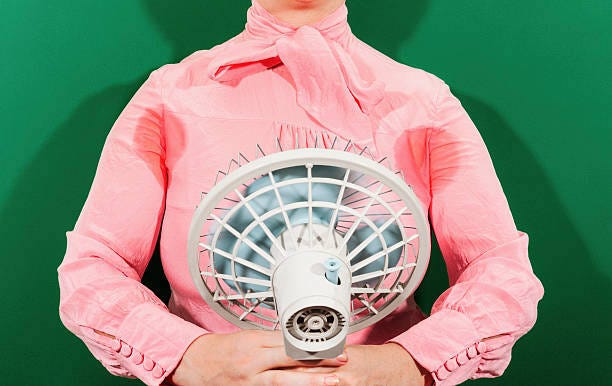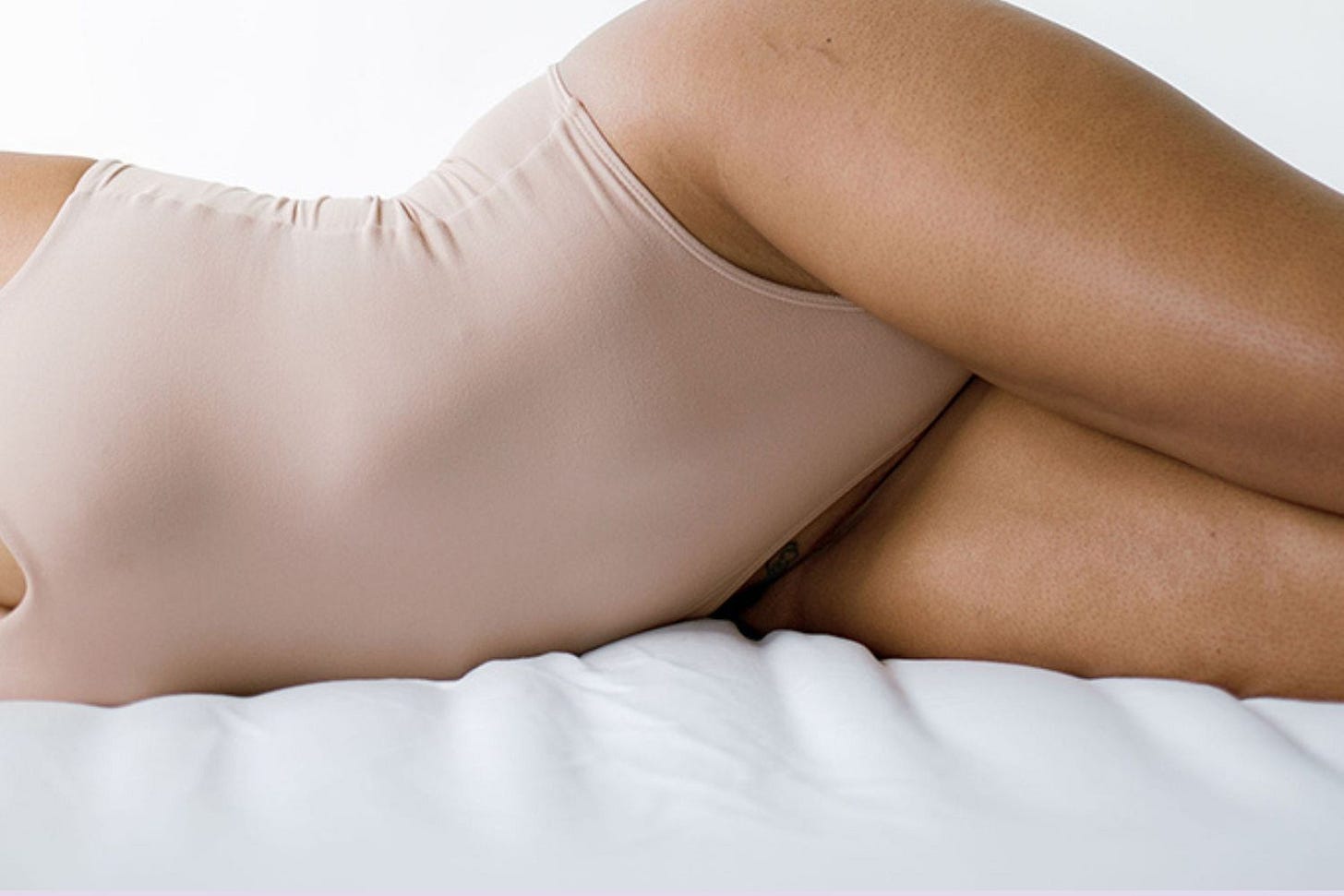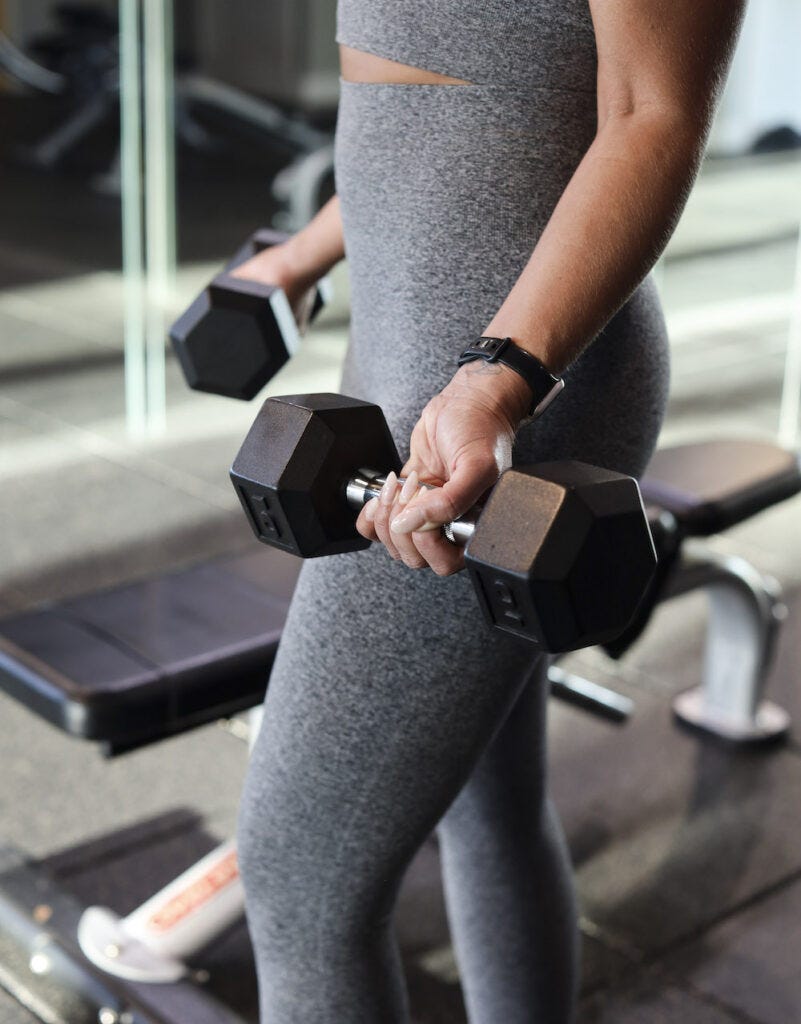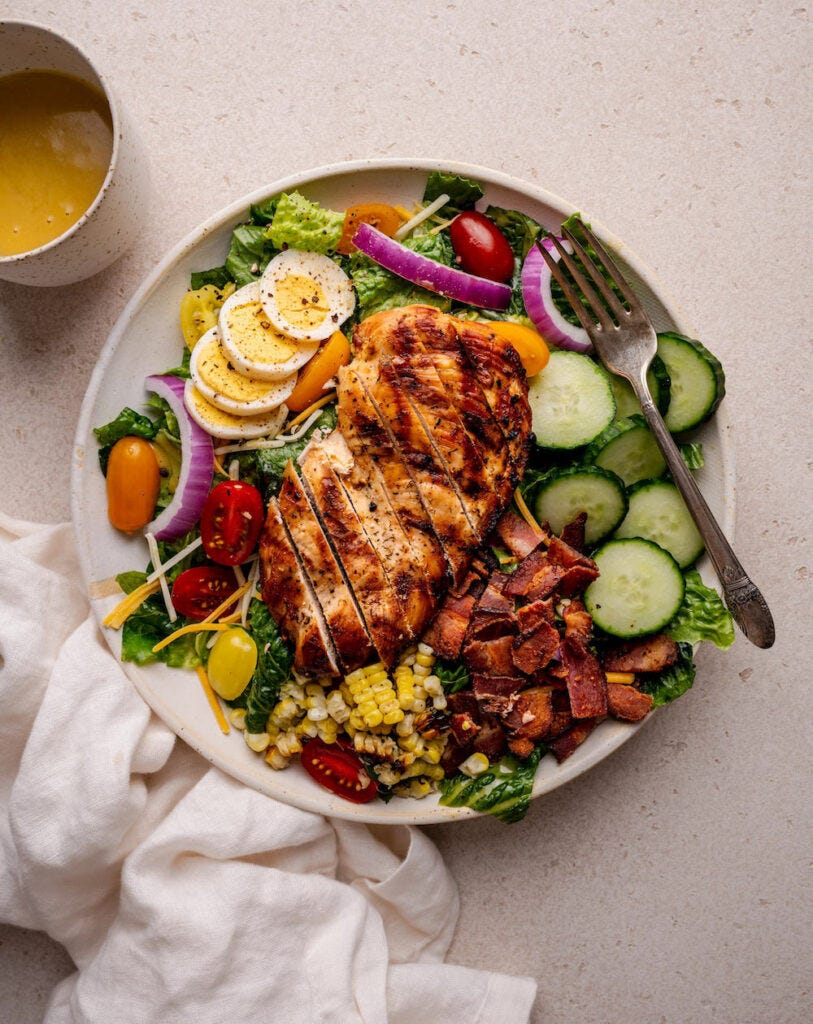Too young to think about menopause? Guess again, sis!
There's no escaping the Big Change. Here's what you need to know NOW!
BeWell | The Midst beauty, style & wellness newsletter
Exclusive for subscribers to The Midst Substack
It was fifth grade, in gym class, standing courtside with my BFF Rachel Smith (the same friend who blew Santa’s cover in second grade) when I learned about menstruation. “Girls bleed out of their butts! When we get older, it’s gonna happen to us, too — till we die!” I went home and cried to my mom. Was it true? Did we bleed out of our butts — for the rest of our lives?
Rachel was close. My mom, in her most perfect and protective way, explained that 1) it wasn’t our butts, it was our vaginas, 2) yes, it was in fact BLOOD that came out of us, and 3) it wasn’t for the rest of our lives. (Amen for menopause?)
The anticipation of that first period — when will it happen, will it hurt? — was all too much to bear. And no sex ed class, Judy Blume book, or Tampax pamphlet could get me ready for the pain, pills, and problems that were to follow.
The Meno Movement
Now 36 years after my first period at age 11, I’m here all over again. Is it true? Do I sweat and get tired and forget things and stop bleeding — for the rest of my life?
With all of the preparedness now offered to young girls, it’s shocking that only recently — in this Meno Movement — we have information and conversations about another HUGE life change.
Perimenopause and menopause are no joke. During this time, our bodies undergo massive hormonal changes that affect all aspects of life — and if we’re unaware of them and experience symptoms, it’s a shock to the system.
One of our goals at The Midst is to share info and stories from women about menopause to empower our readers. Below you’ll find a comprehensive piece by writer Sally Duffin who tells what happens in peri/menopause and why it’s important to understand these hormonal changes before they occur. Not everyone has a BFF to tell them what to expect in midlife, but lucky for us (the staff and myself included!), we do have our own Rachel Smith called “The Midst” to tell us what’s up.
Meno symptoms heating up?
Learn why at our FREE virtual event this Friday, August 16: More Than Hot Flashes: Demystifying Menopause with The Midst
Our expert panel of doctors and community members will share everything they know — and answer all your questions — on peri/menopause. Please join us!
PLUS! Get your ticket to F#ck Middle Age: A Day in The Midst
Meet us at our live event in Chicago on Saturday, October 19, to learn what the f#ck is going on with our bodies during peri/menopause, how to navigate midlife careers and reinvention, and real talk on beauty and wellness.
Why do I need to think about menopause now?
I'm sure I'm not alone in having no clue about how much of an upheaval perimenopause was going to be: The anxiety, heavy periods, sleepless nights, and the fact that nothing in my closet fits me anymore! It wasn't taught about menopause in biology class, my family didn’t talk about it, and even my nutritional medicine training didn’t cover it properly. When perimenopause arrived in my early 40s, I knew I had some serious research to do.
Yet, preparing for menopause is something every woman deserves to hear about. Like any major life event, the more we know about it, the more we can be prepped and ready for action.
If I could zip back in time to my 30th birthday, I’d say, “This is what’s coming, and here’s what you need to do about it." Unfortunately, I don't have a time-traveling DeLorean, but I do have some top tips to share if you're heading toward perimenopause, too.
Why do I need to get ready for menopause?
Menopause is the second big hormonal shift in a woman’s life — or the third if you’ve had pregnancies. It completely recalibrates every system in your body, from brain function and bone strength to energy levels and dress size. The end of your periods transforms you into a new version of yourself.
Perimenopause is the time leading up to menopause. Technically speaking, perimenopause can start at any point after your first period, and some women have a naturally early menopause. But for most women, perimenopause begins in their late 30s or early 40s and lasts for several years.
These years can feel like a rollercoaster ride. An estimated 85% of women experience symptoms during perimenopause. And then there's life after menopause to think about. Heart disease, high blood pressure, type 2 diabetes, dementia, and osteoporosis affect significantly more older women than men and they are all largely preventable.
We can spend up to a third of our lives post-menopausal, so it makes good sense to prepare for this change and preserve our health for as long as possible.
What signs should I be looking for?
Many women in their late 30s and early 40s experience anxiety, insomnia, and brain fog as early signs of perimenopause. When you look at what is happening with our hormones, this makes sense. While we hear a lot about low estrogen and menopause, progesterone is the first hormone to drop. Progesterone calms the brain and nervous system and helps us sleep. Low progesterone can lead to sleep difficulties, foggy thinking, anxiety, and mood swings.
Your periods might still be regular at this point, but it's perfectly possible to be in perimenopause and still have regular bleeds. Or, you might start to notice heavier or lighter bleeding, different pre-menstrual symptoms, and other perimenopausal issues like mood swings, changes in body shape, weight gain, low energy, and hot flashes.
Is it perimenopause or something else?
Of course, anxiety, insomnia, joint pains, and low energy can have lots of different causes. They might be linked to perimenopause, or they might be a sign of something else completely.
While there isn’t a straightforward test to diagnose perimenopause, it’s helpful to investigate and rule out other possible conditions such as:
Underactive thyroid: Symptoms include tiredness, insomnia, constipation, low mood, brain fog, dry skin, and falling hair.
Stress and burnout: Are you doing too much? Most women are juggling more than one thing (jobs, caring responsibilities, health woes, finances, career progression), and we have limits to our mental and physical resources.
Pregnancy.
Iron-deficiency anemia: Common in women with heavy periods and those who follow a vegan diet.
High-intensity exercise programs: Exercising too much while not eating enough can cause periods to stop. When your body doesn’t have enough calories and nutrients to run basic processes, it cuts back on things that aren’t essential to life, such as your menstrual cycle.
If nothing shows up on your blood tests, take it as an indicator that your symptoms could be the start of perimenopause.
5 top tips to prepare for perimenopause
Laying the groundwork for perimenopause doesn’t need to be overwhelming. Building a few healthy diet and lifestyle habits now means you are in a better place for when (or even if!) perimenopausal symptoms arrive.
Here are 5 top tips to help you prepare for the big midlife shift:
1. Tune into your monthly cycle
Whether you’re taking hormonal contraceptives or not, tracking and tuning into your cycle will help you spot the early signs of perimenopause. In her book Second Spring, menopause mentor and author Kate Codrington likens the phases of the menstrual cycle to seasons of the year.
“The premenstrual phase is autumnal," Kate writes, “and has a lot in common with perimenopause, which is a more extended Life Autumn. If you can chart this part of your cycle, noticing what is challenging and how to care for yourself, you will be building a repertoire of resources to support you as perimenopause arrives.”
2. Get help and support for period problems
If you already know or suspect you may have hormonal problems like e endometriosis, fibroids, or premenstrual syndrome (PMS), get help and support now. The hormonal fluctuations of perimenopause can worsen these conditions, but if you have support strategies in place, you'll be better able to handle any flare-ups.
3. Find a resistance training activity you love
We lose around 3–8% of our muscle mass per decade after the age of 30. As perimenopause approaches, it’s vital to work on muscle strength with weight training and resistance exercises. Building muscle tissue now helps you maintain strength, flexibility, and mobility in later life. Your future self will thank you when she hits the dancefloor for her 70th!
4. Step up the protein and eat a rainbow
Fuel your resistance workouts and weight training with plenty of good-quality protein in every meal and snack. Protein also helps you feel fuller for longer and supports healthy blood sugar regulation. As a rule of thumb, aim to cover ¼ of your plate with quality protein like meat, poultry, fish, eggs, beans, legumes, or tofu.
Pair your protein with ¼ plate of complex carbohydrates (think root vegetables, brown rice, or wholemeal pasta) and ½ plate of colorful above-ground vegetables like salad leaves, celery, broccoli, tomatoes, onions, squash, and sweetcorn. Your friendly gut bacteria thrive on the fiber from these vegetables, and it helps them detoxify old hormones.
5. Work on your bedtime routine
Late-night Netflix marathons and bedtime scrolling are best left in your 20s. Now is the time to create a solid bedtime routine to give yourself the best chance of a good night's sleep (babies and toddlers notwithstanding!). If insomnia is already an issue, check out our five tips to get better sleep and more tips for better sleep during menopause.
One last tip
Learn about other women’s experiences. Discovering other women's experiences of perimenopause and menopause helps you shape your roadmap for the journey ahead. This is what The Midst is all about— empowering women and transforming the conversation about midlife. So, talk to older female friends and relatives, tune into menopause podcasts, and dive into the hundreds of peri/menopause books now available. Let your perimenopause path be lit by those who have gone before you.
This article was originally published this past week as I’m 30: Why do I need to think about menopause? on The-Midst.com.
Thank you for reading the BeWell newsletter!
X, Lauria, Head of Content at The Midst
The Midst is a woman-owned business on a mission to empower women in midlife.














Such a needed article. In my early 40s, I seriously contemplated reaching out to Judy Blume to beg her for the Are You There God ? It's me, Margaret 30 years later update that I desperately needed